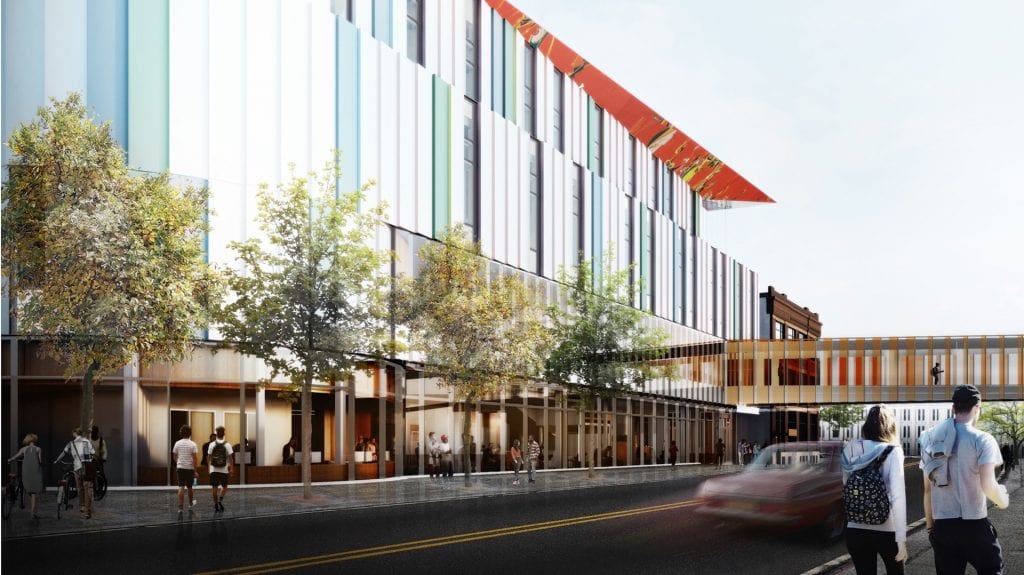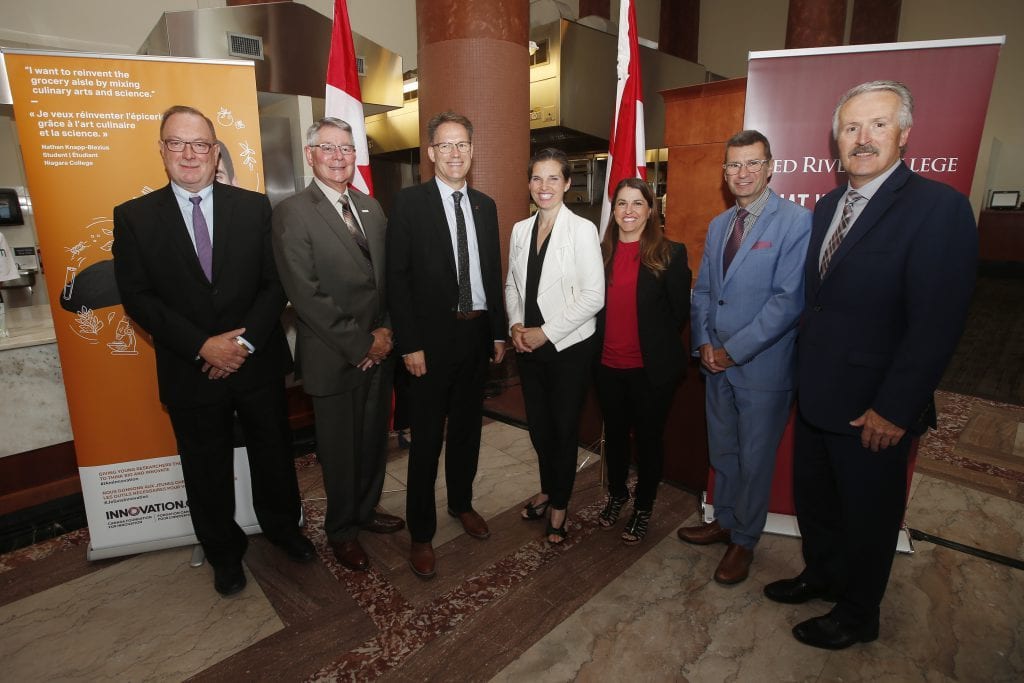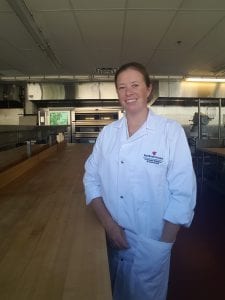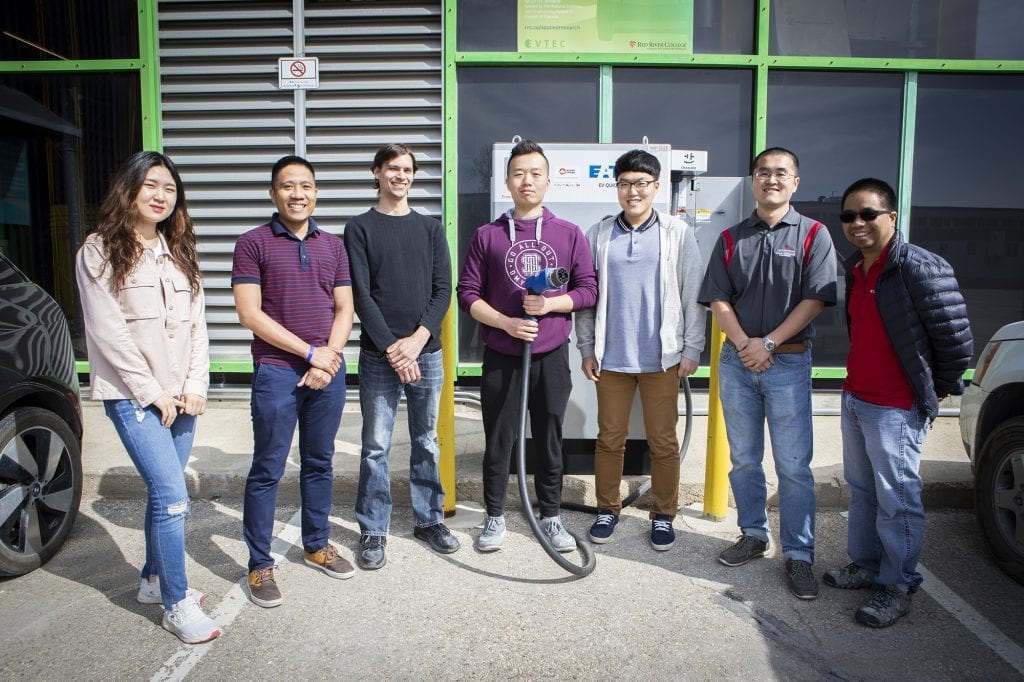Winnipeg Free Press features 15 years of RPI
The Winnipeg Free Press published a great article on Research Partnerships & Innovation in their 2018 Winter Education section.
Next year marks the 15-year anniversary of RPI at Red River College. From battery-operated transit buses, to energy efficient office towers, to creative uses for agricultural by-products, and many more exciting initiatives, RPI has had a busy and successful 15 years thanks to the contributions of talented staff, students, and industry and community partners.
The support of organizations such as the Natural Sciences and Engineering Research Council of Canada (NSERC), the National Research Council – Industrial Research Assistance Program (NRC – IRAP), Social Sciences and Humanities Research Council (SSHRC), Canada Foundation for Innovation (CFI), Research Manitoba, Western Economic Diversification Canada (WD), Strategic Innovation Fund (SFI), and the Province of Manitoba ensures RRC is able to continue doing groundbreaking work in a variety of fields. The success of RPI would not be possible without significant contributions from a community of supporters, and the College looks forward to even greater achievements in the years to come as the result of these partnerships.
Efforts will only grow with new partnerships, capabilities, and research centres – like the Innovation Centre, MotiveLab, Smart Factory, and Culinary Research Kitchen – cutting-edge technology labs that will enhance student learning and strengthen our industry partnerships.
See the article below, and visit the Winnipeg Free Press website for the full section.
RRC celebrates 15 years of Research Partnerships & Innovation
By Jennifer McFee
Winnipeg Free Press | Dec. 6, 2018
Red River College will celebrate a milestone year in 2019 by marking the 15-year anniversary of Research Partnerships & Innovation.
What is amazing about this milestone is how quickly RRC grew from a newcomer to research into one of the leading research colleges in the country. Just recently, RRC was once again recognized as one of Canada’s top 10 research colleges.
“Other than the establishment of the research enterprise at the college, I believe our first major accomplishment was the work we did with Manitoba Hydro to help them develop their downtown office, Manitoba Hydro Place,” said Ray Hoemsen, executive director of Research Partnerships & Innovation.
“We were involved with the prototyping and testing of the building envelope, which is the skin of the building. We have an almost 15-year partnership with Manitoba Hydro, which was recognized by NSERC, the Natural Sciences and Engineering Research Council of Canada. We received an NSERC synergy award for innovation because of our partnership with Manitoba Hydro.”
This project led to a major research program in sustainable infrastructure, which in turn led to the development of a Building Envelope Technology Access Centre.
As well, the college was a driving force in the development of a battery-powered all-electric transit bus in collaboration with Manitoba Hydro and multiple other stakeholders.
On the aerospace and manufacturing side, the college will soon have a Smart Factory coming on stream to provide another applied research space to build on the work done at the Technology Access Centre for Aerospace and Manufacturing.
“We’re fortunate to have two technology access centres — one in aerospace and manufacturing and the other in building envelope technology,” Hoemsen said.
“Basically, there are 17 of these outside of Quebec and we have two of them. They’re intended to support regional clusters, so we’re supporting the aerospace and manufacturing sector in one and the building construction sector with the other.”
The Smart Factory will focus on emerging technology such as robotics, automation, additive manufacturing, high-speed robotic inspection and industrial networking.
Looking beyond the 15 years of impressive achievements, the future looks bright for Research Partnerships & Innovation.
Construction is already underway on the Innovation Centre, a new facility located in the Exchange District next to the existing Roblin Centre building. With an expected completion date of 2020, the $95-million Innovation Centre will be a hub where education and industry will intersect. The 100,000-square-foot facility will feature adaptable classrooms and “collision spaces” as well as a roundhouse auditorium to foster collaboration.
The ACE Project Space is another area that offers an interactive environment for students, faculty, industry leaders and entrepreneurs to use cutting-edge technology to find solutions to real-world business challenges.
In addition, Red River College is adding several more new facilities that will bolster the potential of both students and industry. These include an extreme weather vehicle-testing facility called the MotiveLab.
“We’ve done a lot of work with the heavy vehicles sector, which is very important in Manitoba,” Hoemsen said.
“The MotiveLab is a new specialized test facility that will be unique in Western Canada. It allows us to test vehicles on a year-round basis in a controlled environment. We can go from -40 C to 40 C within a chamber year-round.”
Construction has also begun on the Culinary Research Kitchen, which will offer state-of-the-art research kitchens plus an analytical and culturing lab, a specialized food photography room and collaborative spaces for working together.
“It marries food science and the culinary arts,” Hoemsen said. “So basically you take ingredients that are good for you health-wise and make them appealing to consumers. We’ve been working with the producer groups to develop new recipes, which helps companies bring new products to market.”
Across the board, this hands-on approach to education results in benefits for students that extend beyond academic knowledge.
“Research activity enables us to get some research infrastructure like facilities and equipment that can also be for teaching purposes. As a result, that benefits students who are taught using the latest and most current technology in education,” Hoemsen said.
“When they engage with a project, it helps with their skill development and work-integrated learning. It not only gives them technical skills but also soft skills that employers are looking for, like better communication and working as a team.”
For Hoemsen, it’s a source of pride that Red River College is highly ranked for its research capabilities.
“It speaks to the collective effort of our students, instructors and research staff as well as the partners that we’re fortunate to work with,” Hoemsen said.
“We’ve had over 500 research partners over the last 15 years and we couldn’t do it without them.”
To learn more about Red River College, visit rrc.ca.







